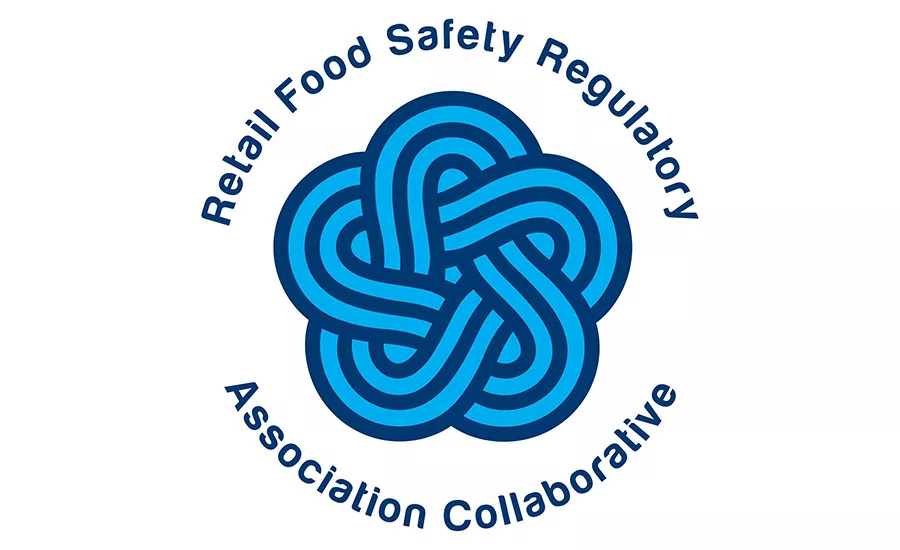The Retail Food Safety Collaborative: Putting Collaboration into Action at Retail
Honing a strategy for reducing risk at consumer contact

When the U.S. Food and Drug Administration (FDA) introduced the “New Era of Smarter Food Safety” blueprint in 2020, it brought with it a call to action to focus on modernizing traditional retail food safety approaches. Coincidentally, one of the plan’s four core elements punctuated work that was already happening among several organizations that have the regulation of retail food safety in state, local, territorial, and tribal food safety programs as a pillar of their missions. This retail food safety focus includes foodservice, convenience stores, and retail food stores.
In 2018, the leadership of four retail regulatory food safety organizations was discussing the need to capitalize on what each of the teams did best while working to extend resources further by avoiding duplication and leveraging expertise each brought to the table. Key to the discussion was FDA, which also has a vested interest in bending the curve of foodborne illness at the retail level.
In June 2019, the Retail Food Safety Regulatory Association Collaborative was born. At the table were the Association of Food and Drug Officials (AFDO), Conference for Food Protection (CFP), National Association of County and City Health Officials (NACCHO), and National Environmental Health Association (NEHA). This work was underscored by the support and participation of FDA and the U.S. Centers for Disease Control and Prevention (CDC) as members of the collaborative. Additionally, FDA awarded a 2-year cooperative funding agreement in the summer of 2020 to support the collaborative’s initiatives.
The collaborative’s work focuses on retail food safety initiatives to reduce the occurrence of foodborne illness outbreaks within retail food establishments through the reduction of foodborne illness risk factors. The group established several long-term priorities to further their strategic goal, including a national strategy focused on retail food safety initiatives that target efforts to reduce the occurrence of foodborne illness risk factors within retail food and foodservice establishments. Other priorities include the following:
- Identifying, assessing, and promoting the implementation of effective intervention strategies to reduce foodborne illness risk factor occurrence
- Building upon FDA’s Voluntary National Retail Food Regulatory Program Standards technical assistance strategy to provide a “multiplier effect” to promote participation and implementation of the standards, including the latest edition of the FDA Food Code by state, local, tribal, and territorial (SLTT) retail food regulatory programs
- Assessing the application of risk-based inspection methods by SLTT regulatory jurisdictions
- Identifying and issuing joint recommendations with FDA on emerging retail food safety issues
- Developing methods to better share information among stakeholders
The collaborative is also focused on mapping all its efforts in clear alignment with the FDA’s “New Era of Smarter Food Safety” blueprint.
CDC provides numbers that illustrate the need for the collaborative. CDC data indicate that retail food locations are the single most common origination spot for outbreaks, with over 75 percent of foodborne illness outbreaks retail in origin (61% restaurants and 14% banquet facilities). Furthermore, when illnesses are analyzed, 80 percent of them were associated with retail establishments (43% restaurants, 24% catering or banquet facilities, and 13% institutions such as schools). These data sets highlight the timeliness of the collaborative’s work to address food safety in the United States with emphasis on improving the retail food safety system as a significant way to make an impact.
Resources for the Food Code Adoption Toolkit
The collaborative has set up multiple communications channels to support its work. Information can be found at:
Approximately 1.5 million retail food facilities are regulated by state and local agencies. Roughly 35 percent are regulated by state food safety programs. The remaining 65 percent are overseen by local regulatory agencies.
The collaborative’s associations developed complementary cooperative agreement proposals for long-term objectives to provide a comprehensive plan. AFDO’s proposal focused largely on work with state, territorial, and tribal agencies, while the proposals from NEHA and NACCHO/CFP focused on local agencies. The various project teams are developing final work objectives from both perspectives.
Looking for quick answers on food safety topics?
Try Ask FSM, our new smart AI search tool.
Ask FSM →
Last month, the collaborative introduced its first key project—the Food Code Adoption Toolkit during the formal introduction of the collaborative and its work to the regulatory communities across the country. Understanding the obstacles to adoption of the FDA Food Code is one of the first issues the collaborative tackled. The tool kit is a web page designed to be a living kit that is updated, with contributions added in support of the adoption of the FDA Food Code by SLTT regulatory agencies.
The tool kit is based on the research a working group did in the summer of 2020, assessing a jurisdiction’s Food Code adoption process, challenges, and successes. The Food Code Adoption Toolkit provides resources, tools, and information for jurisdictions seeking to adopt the most current versions of the FDA Food Code. The collaborative is billing the site as the go-to resource for approaches and tools that have worked for those who have completed or are working to complete their adoption journey. The research showed that the time-to-adoption varies greatly, and the collaborative’s goal is to shorten and simplify the adoption process. The tool kit supports that goal and can be found at www.retailfoodsafetycollaborative.org/national-food-code-adoption.
Brooke Benschoter, APR, M.Sc., supports AFDO and its mission as the director of communications. She received her M.Sc. in leadership development, organizational development, and adult learning from Drake University.








